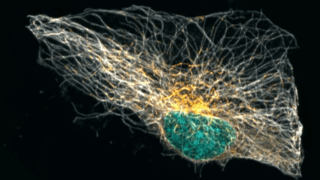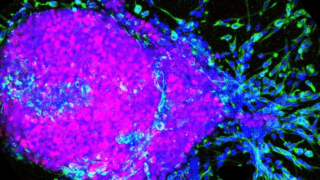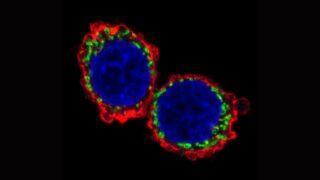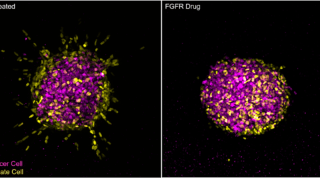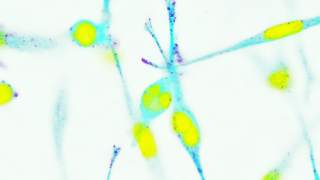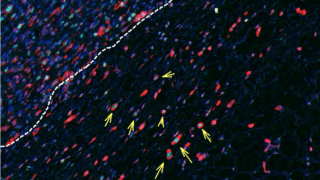Tag: Invasion
Search News
Categories
Archives
How cancer cells shapeshift to spread through the body
23rd August 2023
Researchers show how cancer cells rearrange their inner workings to squeeze between obstacles
Read moreUnexpected inhibitor of breast cancer invasion revealed
28th July 2023
The findings could help us to distinguish who will benefit from treatment
Read moreSkin cancer rewires its energy systems to spread more efficiently
22nd May 2023
Melanoma cells rewire their mitochondria, but reversing this could make tumour cells less invasive.
Read moreResearch identifies new way to halt pancreatic cancer invasion by targeting healthy cells
10th November 2022
Researchers from Barts Cancer Institute at Queen Mary University of London have identified a new channel of communication through which non-cancerous cells drive the invasion of cancer cells in pancreatic cancer. By blocking a particular signalling molecule within this pathway, called Fibroblast Growth Factor Receptor 1, the team was able to reduce invasion of pancreatic cancer cells in the laboratory.
Read moreProtein powerhouses – Q&A with Dr Mardakheh
9th November 2020
We spoke with Dr Faraz Mardakheh from Barts Cancer Institute’s Centre for Cancer Cell and Molecular Biology about his most recent research paper, published today in Developmental Cell. The study sheds lights on how invasive cancer cells increase their protein-making capacity in order to boost their growth and invasive capabilities, and identifies a key player involved in this process, which may represent a target for therapeutic interventions.
Read moreAggressive melanoma cells at edge of tumours are key to cancer spread
20th October 2020
Research led by Barts Cancer Institute, Queen Mary University of London, has revealed novel insights into the mechanisms employed by melanoma cells to form tumours at secondary sites around the body. The findings from the study may help to identify new targets to inhibit melanoma spread and guide treatment decisions in the clinic.
Read more
